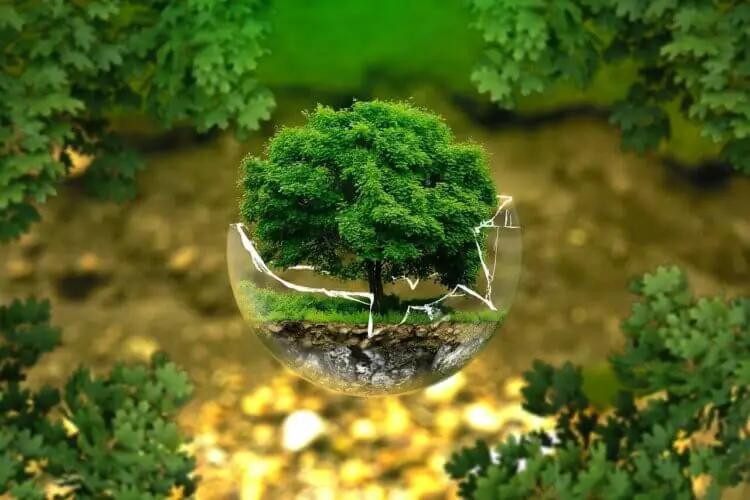Nowadays, ecology and nature preservation has become of uttermost importance. All of society and especially schools are becoming more aware of the importance of environmental issues, as students who are well-educated will grow up to be more environmentally conscious people. Throughout their homes, families, and communities, they will share the information they learned in school about environmental concerns with their peers.
In order to disseminate information and knowledge about the environment, schools must train young people with critical and conscious thinking, so that they can take the acquired knowledge back to their homes and neighborhoods and propose ideas and solutions that will aid in the development of sustainable development and mitigation of environmental damage.
As a mediator of this educational concept, instructors must take real and everyday acts aimed at promoting reflection and awareness among their pupils. There’s a need for faculty members to be well-versed in environmental conservation and preservation so that they can meet this problem head-on.
What is Environmental Education?
The link between man and his environment is the focus of environmental education. It integrates natural sciences, humanities, and social sciences, and stresses interconnections. Hence, environmental knowledge, a grasp of socio-economic relationships and ecosystems, and the relationship between man and nature, are fundamentally important. In order to preserve the natural basis of life, environmental education must be based on a set of values.
Learning about the environment develops skills that enable one to appreciate nature’s boundaries and, as a member of the community, contribute to shaping the natural environment and society in a future-oriented, responsible manner. Learning about the interdependencies between the environment, social and economic systems as well as cultural values and ethics is one of the benefits of environmental education. It enables students to make responsible judgments and take appropriate actions.
Why Is Environmental Education Important?
Sustainability
Consumption of resources in a sustainable manner would ensure that the requirements of future generations are satisfied. Natural resources will be exhausted much too quickly for future generations to exist at the current pace of use. It will be up to future generations to deal with the repercussions of reckless resource use today. Education about the environment helps individuals realize the implications of over-exploitation and respond accordingly.
Young minds are taught about some of the environmental problems that might have an impact on the ecosystem through environmental education. So they may contribute to the worldwide endeavor of environmental protection. Starting with research projects and environmental essays to raise awareness and attract attention to important issues, students have lots of opportunities to contribute to environmental protection. Environmental education also educates students for future jobs and equips them with the necessary skills to become professionals in the near future.
Awareness about Environmental Threats
To urge the current generation to make safer and better decisions. One would be more familiar with natural disaster rescue drills, how to use your greens more effectively (they can accomplish things that no medication can), and so forth. When it comes to environmental education, you’ll be warned about everything that may go wrong.
Renewable energy is made more important through environmental education. Most of the world’s pollution comes from non-renewable forms of energy such as gasoline, diesel, and the like. Utilizing solar, wind, and other renewable resources in our battle against global warming has become a top priority.
What Are The Benefits Of Environmental Education?
Environmental education allows us to better understand the challenges that the environment faces and raises public awareness about them. When it comes to solving these problems, a thorough awareness of the surroundings will be invaluable. In the meanwhile, environmental education includes developing ways to promote and preserve nature. Involving children in environmental education offers numerous advantages for them and the communities they live in, whether we bring nature inside the classroom or take them outside. Encouraging students to learn about environmental issues in school is important because it teaches them the importance of protecting the environment.
Boosts Critical And Creative Thinking Skills
Environmental education motivates students to conduct study, inquire about how and why certain events occur, and then make their own judgments regarding complicated environmental concerns. Ecological education inspires the next generation of consumers, workers, policymakers, and decision-makers by developing and strengthening critical and creative thinking abilities. The environmental education conversation and learning allow the students to analyze the situations that are impacting the environment.
Promotes Healthy Lifestyle
Numerous issues, such as weight and anxiety, make it difficult for students to get out more regularly. The environment has the capacity to heal, and environmental activities guarantee that kids make the most of their time. This instruction in schools encourages children to get outside and be active. It also aids in the treatment of various health concerns that kids face these days.
Teaches responsibility
Environmental education helps students learn how their decisions and actions affect the environment, increases knowledge and skills needed to solve complex environmental challenges, and ways we can take action to maintain our environment strong and sustainable.
As a result of environmental education, children learn how their decisions and actions influence the environment, as well as how to maintain the environment and make it strong and sustainable for the future. In order to preserve the environment, schools should teach kids how their activities affect nature.



